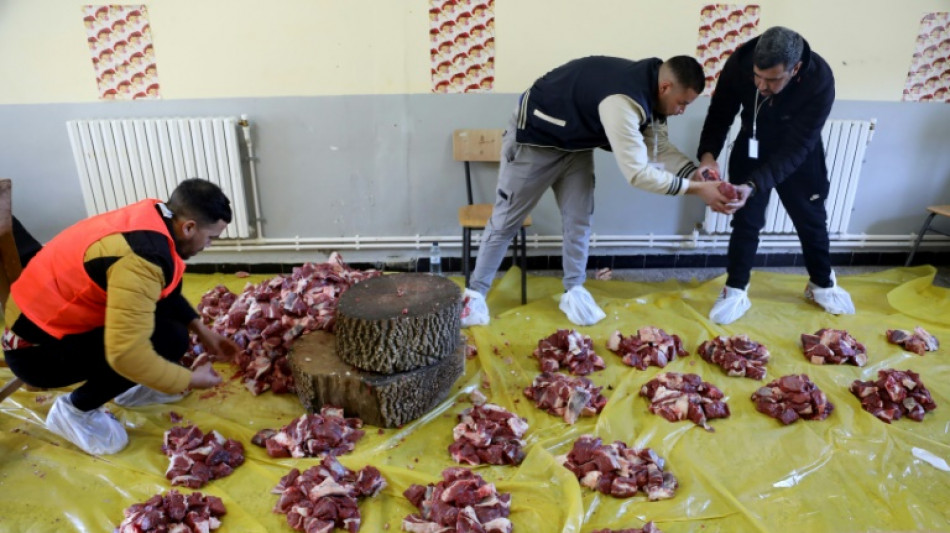
-
 Where things stand in the US-China trade war
Where things stand in the US-China trade war
-
De Bruyne to leave Man City at end of the season

-
 Youthful Matildas provide spark in friendly win over South Korea
Youthful Matildas provide spark in friendly win over South Korea
-
Stocks, oil extend rout as China retaliates over Trump tariffs

-
 De Bruyne says he will leave Man City at end of season
De Bruyne says he will leave Man City at end of season
-
UK spy agency MI5 reveals fruity secrets in new show

-
 Leverkusen's Wirtz to return 'next week', says Alonso
Leverkusen's Wirtz to return 'next week', says Alonso
-
England bowler Stone to miss most of India Test series

-
 Taiwan earmarks $2.7 bn to help industries hit by US tariffs
Taiwan earmarks $2.7 bn to help industries hit by US tariffs
-
Rat earns world record for sniffing landmines in Cambodia
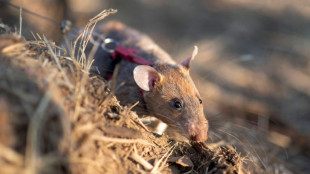
-
 Elton John says new album 'freshest' since 1970s
Elton John says new album 'freshest' since 1970s
-
EU announces 'new era' in relations with Central Asia

-
 Greece nixes Acropolis shoot for 'Poor Things' director
Greece nixes Acropolis shoot for 'Poor Things' director
-
'Historic moment': South Koreans react to Yoon's dismissal

-
 Israel kills Hamas commander in Lebanon strike
Israel kills Hamas commander in Lebanon strike
-
Trump unveils first $5 million 'gold card' visa

-
 Crashes, fires as Piastri fastest in chaotic second Japan GP practice
Crashes, fires as Piastri fastest in chaotic second Japan GP practice
-
India and Bangladesh leaders meet for first time since revolution
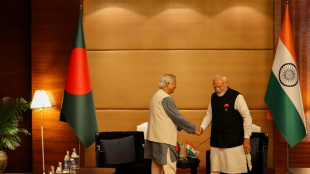
-
 Israel expands ground offensive in Gaza
Israel expands ground offensive in Gaza
-
Families of Duterte drug war victims demand probe into online threats

-
 Stocks extend global rout after Trump's shock tariff blitz
Stocks extend global rout after Trump's shock tariff blitz
-
Kolkata's Iyer more bothered about impact than price tag

-
 BP chairman to step down after energy strategy reset
BP chairman to step down after energy strategy reset
-
Indian patriotic movie 'icon' Manoj Kumar dies aged 87

-
 China floats battle barges in Taiwan invasion plans
China floats battle barges in Taiwan invasion plans
-
McLaren's Piastri fastest in chaotic second Japanese GP practice

-
 South Korea seize two tons of cocaine in largest-ever drug bust
South Korea seize two tons of cocaine in largest-ever drug bust
-
Pacific nations perplexed, worried by Trump tariffs

-
 The race to save the Amazon's bushy-bearded monkeys
The race to save the Amazon's bushy-bearded monkeys
-
TikTok must find non-Chinese owner by Saturday to avert US ban

-
 Trump tariffs to test resiliency of US consumers
Trump tariffs to test resiliency of US consumers
-
Clamping down on 'forever chemicals'

-
 Prominent US academic facing royal insult charge in Thailand
Prominent US academic facing royal insult charge in Thailand
-
Yana, a 130,000-year-old baby mammoth, goes under the scalpel
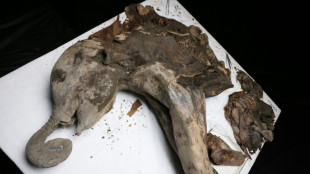
-
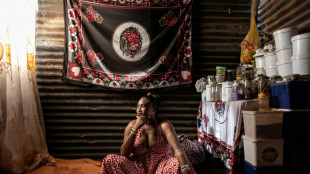 'Don't want to die': Lesotho HIV patients look to traditional medicine
'Don't want to die': Lesotho HIV patients look to traditional medicine
-
Curry scores 37 as Warriors outgun LeBron's Lakers

-
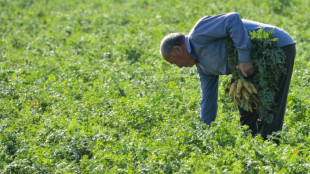 Crops under threat as surprise March heatwave hits Central Asia: study
Crops under threat as surprise March heatwave hits Central Asia: study
-
Japan PM says Trump tariffs a 'national crisis'

-
 Security 'breakdown' allows armed men into Melbourne's MCG
Security 'breakdown' allows armed men into Melbourne's MCG
-
Norris fastest in Japan GP first practice, Tsunoda sixth on Red Bull debut

-
 Albon says Thailand taking bid for F1 race 'very seriously'
Albon says Thailand taking bid for F1 race 'very seriously'
-
'It's gone': conservation science in Thailand's burning forest
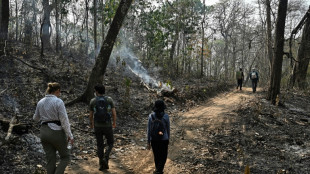
-
 Protest as quake-hit Myanmar junta chief joins Bangkok summit
Protest as quake-hit Myanmar junta chief joins Bangkok summit
-
EU leaders push for influence at Central Asia summit
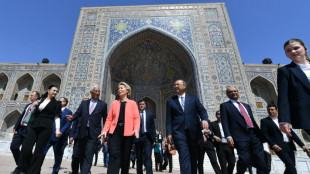
-
 Asian stocks extend global rout after Trump's shock tariff blitz
Asian stocks extend global rout after Trump's shock tariff blitz
-
Lewandowski, Mbappe duel fuelling tight La Liga title race

-
 South Korea court upholds President Yoon's impeachment, strips him of office
South Korea court upholds President Yoon's impeachment, strips him of office
-
Liverpool march towards title as Man City face Man Utd

-
 Finland's colossal bomb shelters a model for jittery Europe
Finland's colossal bomb shelters a model for jittery Europe
-
Athletes frustrated as France mulls Muslim headscarf ban in sport


Centuries-old Algerian indigenous tradition champions sharing
In a village nestled in the mountains of northeastern Algeria, locals and visitors gathered under a cold winter sky to celebrate Tamechrit, a centuries-old Berber tradition rooted in sharing.
Seeking to preserve a practice that faded during the Algerian civil war of the 1990s, villagers marked Tamechrit with Berber music and food on the occasion coinciding in January with the Amazigh new year.
The minority community of Berbers refer to themselves as the Amazigh, meaning "free people". They have long fought for recognition for their ancient culture and language in modern states across North Africa.
Berbers are descendants of pre-Arab North Africans, whose historic homelands stretched from the Canary Isles and Morocco to the deserts of western Egypt.
"We hope to perpetuate this tradition during cultural or religious festivals," bringing together different people from the village and even those who have left, Dahmane Barbacha, a 41-year-old from Ath Atig village, told AFP.
Children wore temporary Amazigh face tattoos at the event that dates back to the 13th century, according to historian Saleh Ahmed Baroudi.
Tamechrit means "offering" in Tamazight, the community's language recognised as an official language alongside Arabic in Algeria.
It represents "an occasion for gathering, fraternity, and reconciliation between families" across Amazigh villages, said Baroudi, who teaches contemporary Algerian history.
Different regions of the country use other names for the custom, he added.
The merrymaking is also held to observe major Islamic events such as the fasting month of Ramadan, Prophet Mohammed's birthday, and Ashura.
It is often held in Zawiyas, small places for worship and religious teaching, usually where a local saint or holy figure lived and was buried.
Baroudi said most of those sites are in mountainous regions, adding to the "spiritual dimension" of Tamechrit.
- Reconciliation -
The festival begins days in advance, when men from the village collect donations to purchase cattle whose meat is later distributed equally among families.
During the event a communal meal -- usually couscous prepared by village women -- is served to everyone, regardless of social standing.
Ammar Benkherouf, a 36-year-old living in France, said he has been taking annual leaves in recent years to attend the ceremony.
"I can't describe the happiness it brings me to help keep this heritage alive," he told AFP.
By midday, the communal couscous is served to villagers and visitors while volunteers distribute the portioned meat around the village's households.
Tamechrit had also been a tool for fostering solidarity during Algeria's Independence War against French colonial rule from 1954-1962, according to Baroudi.
The ritual then faded during the country's civil war between 1992 and 2002, a conflict between authorities and Islamist groups that claimed the lives of around 200,000 after the Islamic Salvation Front (FIS) party won municipal and legislative elections.
Tamechrit then "made a comeback in the early 2000s" with the end of the civil war, said Baroudi.
Today, Tamechrit continues to bring together villagers and resolve conflicts between them.
Farhat Medhous, a 31-year-old who heads a cultural association in Ath Atig, said his group now looks to "restore women's participation in these traditions inherited from their ancestors".
He said that, traditionally, women held their own gatherings in a separate area from the men's, but their involvement diminished even after the civil war.
In addition, he added, the association aims at teaching the younger generations Tamechrit values, meaning sharing and reconciliation.
He said this year's festivity was organised by villagers aged 18 to 40.
"We have held activities for children to teach them the values of volunteerism and community," said Medhous. "This prepares them to preserve these traditions as they grow older."
P.Martin--AMWN

